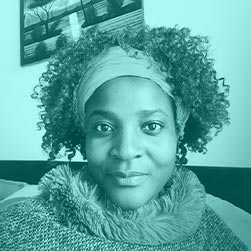
Affiliated member
Research
Linda Musariri is a recipient of the AISSR-administered starter grant that she is using to support her research on climate change and sustainable development more broadly and ‘just’ energy transitions in Southern Africa in particular. The ‘just’ energy transition has been commonly presented as the needed transition to usher the world into environmentally sustainable economies and just societies for all. However, in southern Africa where some of the materials needed for energy transitions are extracted the quest for justice is complicated by the longstanding need to accelerate economic development while adapting to the devastating effects of the changing climate. In addition, some of these places are plagued with fragile ecosystems, conflict, and extended climate vulnerability, where any change through excavations, or deforestation would escalate geopolitical and climate disruptions and consequently undermine planetary security. Furthermore, those most affected by such transitions and climate change more broadly are often institutionally and intellectually excluded from academic conversations and global discourses, yet they are often portrayed as the purported beneficiaries of the interventions. This has resulted in a disconnect between dominant frames of climate change/sustainability and oral traditions and the lived realities of affected communities. As such, questions remain who gets to decide what is just and for whom? Furthermore who is benefitting and who is paying for this promised future? More importantly, who is included/excluded in such visions of a green and clean future?
To answer the questions above Musariri is currently running two research projects, lithium mining and hydrogen in Zimbabwe and South Africa respectively. She has established an ecology of knowledges lab (EOK Lab) that brings together various researchers and knowledges including the often-excluded indigenous knowledge systems to explore what justice means for indigenous communities in Zimbabwe and South Africa.
Fieldsite
Biosketch
Previous publications
Musariri L. (2023). Whose crisis? Development interventions and the politics of representation of masculinities and migration in Africa Special Issue on ‘Uncomfortable truths in international development: approaches to the decolonization of knowledge from development practice, policy and research.’Knowledge Management for Development Journal17(1/2):127-144
Musariri L. and Moyer E. (2022) Hunting Treasure, Gathering Trash: Politics and precarity in the plastic recycling industry possible publication Etnofoor
